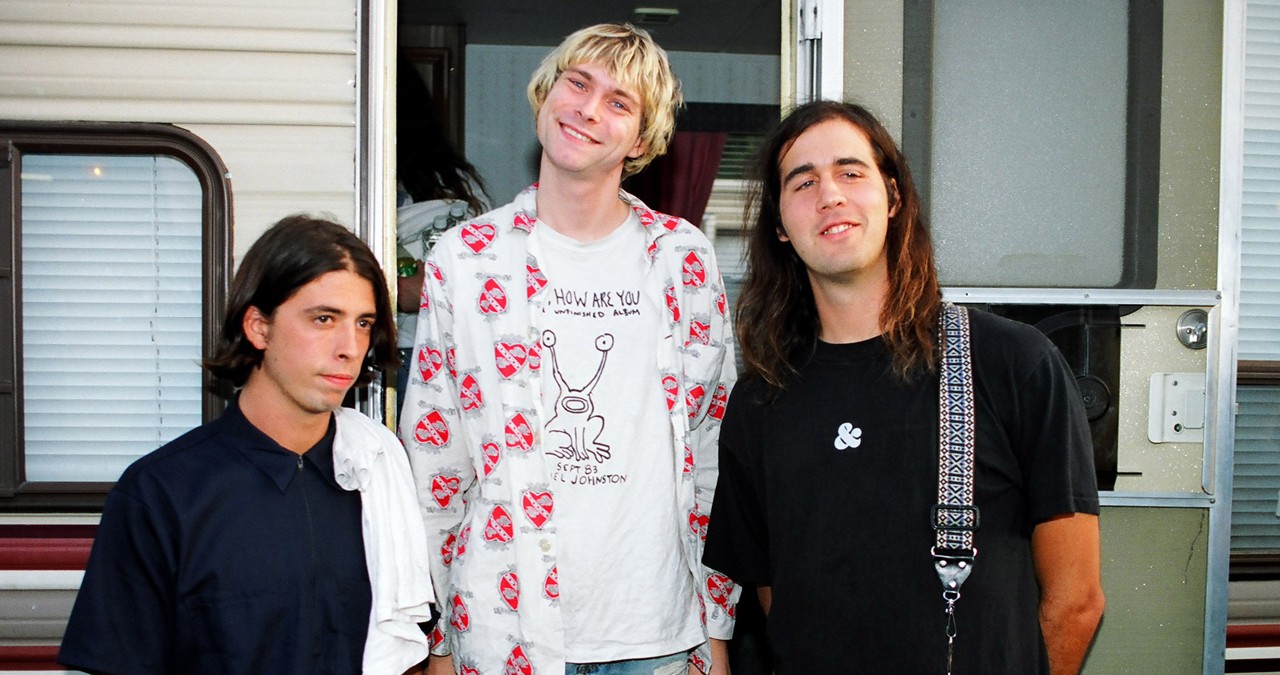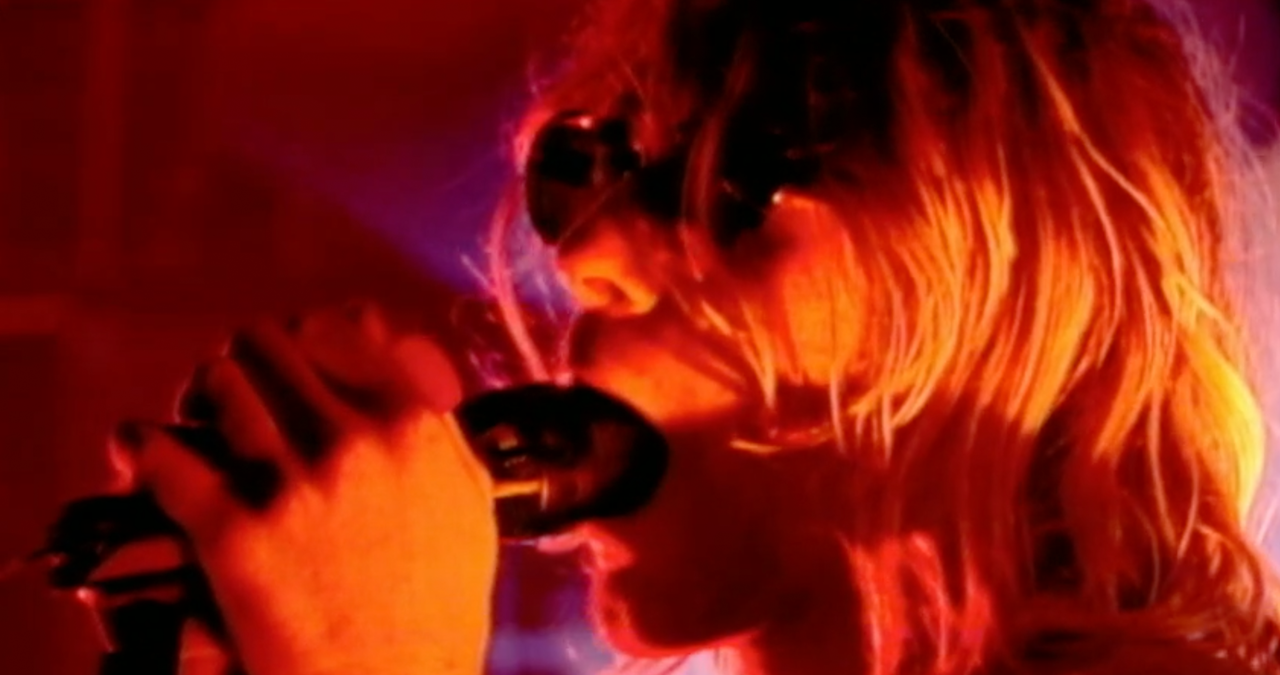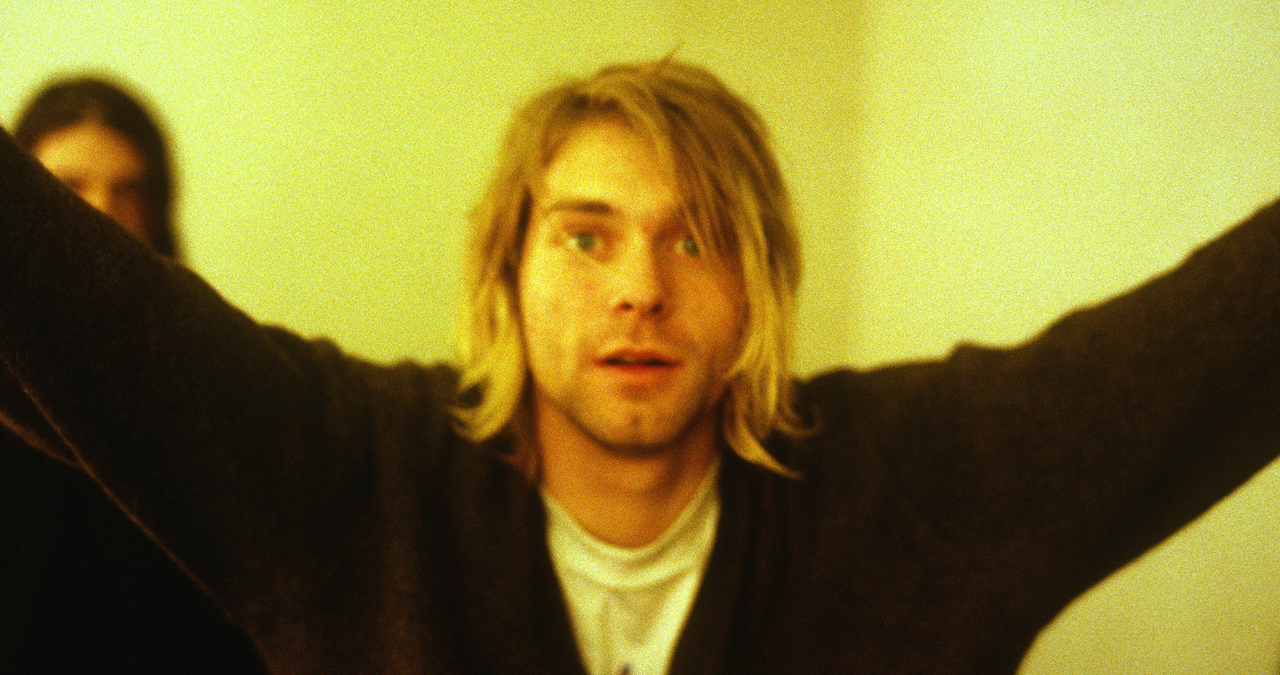“They were just asking for it”: When Kurt Cobain deliberately sabotaged Nirvana’s Top of the Pops appearance
Cobain later said his mock-baritone vocal was an attempt at imitating Morrissey

Ever since 1964, Top of the Pops had been an integral part of Britain’s musical and cultural landscape. For many television viewers, the chart-based music performance-oriented show - which sadly aired its final episode in 2006 - was their main route into hearing what the country had chosen as that week's biggest songs for the first time.
Others, who might have even bought the singles within that week’s top ten (or at least, heard the songs on the radio) often would tune-in to 'TOTP' to get a handle on just what their favourite artists actually looked like.
Despite their penchant for ramshackle and destructive live performances, Nirvana were, in reality, astute planners when it came to choosing their outlets for television exposure.
The overwhelming success of Smells Like Teen Spirit had found the once little-known Seattle-based grunge trio conquer a domain then largely the reserve of pop and dance - entering the UK top ten at a not to be sniffed at number #9.
Though thrilled to be appearing on the show (which would air November 25th 1991, a day after the release of their monumental second album, Nevermind), Kurt Cobain, Krist Novoselic and Dave Grohl raised their eyebrows when they were asked if they could (for the sake of the production team) mime along to the song with a backing track. This was often the case on Top of the Pops and was a no-brainer for dance and pop acts. But Nirvana felt uncomfortable…
Conscious of being considered frauds, Grohl, Cobain and Novoselic fought their corner.
“It just seemed so strange to be on Top of the Pops,” Dave Grohl would later tell the BBC in its When Nirvana Came to Britain documentary. “That was reserved for pop bands - we don’t belong there.”
As Grohl recounted to the BBC, the negotiation around miming with the TOTP team came to an agreement - with just enough wiggle-room for spontaneity; “We felt uncomfortable doing it, they said ‘Ok, we’ll let the vocals be live, but the music has to be pre-recorded’. They were just asking for it.”
Come the day, and the camera cut to the band as the studio track of Smells Like Teen Spirit had already begun playing.
A ludicrously hyperactive Novoselic twisted and contorted his bass around himself - emphasising that he couldn’t possibly be actually playing it to all but the most instrumentally ignorant of viewers, while Grohl appeared to be hitting only the hi-hats and cymbals in a fashion completely out-of-step with the song’s beat.
Want all the hottest music and gear news, reviews, deals, features and more, direct to your inbox? Sign up here.
As the camera found a shades-clad Cobain, it was obvious that Teen Spirit's signature power chords were not being produced by this unnervingly robotic figure, mock-strumming his guitar by moving his hand up-and-down automaton-like.
An oddly menacing smile glanced across his face as he eyed the audience through his shades. There was clearly mischief afoot.
Then any semblance of emotion vacated Kurt’s face, as he clasped the mic with both hands, and began to deliver the performance’s only live component.
It was instantly apparent that he was going to be taking liberties with both his voice, and the song’s lyrics.
“Load up on drugs, kill your friends, it’s fun to lose and to pretend,” Cobain sang in a creepier lower octave. He'd subverted the original lyrics into something far darker for this - perhaps their biggest assembled mainstream audience to date. Quite a choice.
As Cobain’s gloomy delivery continued into the pre-chorus part, it escalated into further bizarreness.
Cobain’s mouth smothered the microphone during the ‘Hello, hello, hello, how low’ section. Something TOTP viewers were quite unused to seeing…

As the studio backing of Smells Like Teen Spirit exploded into its anthemic chorus, Cobain defused its power by lurching into a full Morrissey-aping wobbly baritone, with his arms outstretched.
As the performance continued, the anarchy proved infectious, as pockets of Nirvana fans and casual attendees leapt onto the stage to cavort with the Seattle triumvirate. Cobain rounded out the performance by dancing around with his guitar held above his head.
A standard night of Top of the Pops this was not.
For some this was quite the most exciting thing they'd seen on television all year, for Nirvana's UK press team, the worry was that this was an unrecoverable disaster.
“He sang in this ridiculous voice, we were all there with our mouths held open going ‘what the hell is this?’” Nirvana’s UK Tour Promoter, Alex Weston told the BBC. “This was their big, big moment - and he completely sabotaged it.”
Despite baffling many of the show’s viewership, this parodic version of the song actually sounded pretty cool to our ears.
Cobain’s reigned-in, gothy spin on the song contrasted against the intensity of the studio track (and the chaos of his bandmates’ antics behind him) perfectly.

While Cobain later suggested that the vocal approach was a deliberate attempt to parody Morrissey, other reports indicated that Nirvana's frontman was suffering from a cold at the time. Perhaps this was the real factor that led him to lower his voice a few octaves.
But regardless, the appearance won Nirvana new fans, it cemented their anti-authoritarian, alternative credo in the UK and would go on to became one of Top of the Pops’ most memorable moments - regularly featuring in nostalgic look-backs at the show’s greatest performances.
As Anton Brookes, Nirvana’s UK publicity agent summed up; “It worked for them, because it created legend - it created myth.”

I'm Andy, the Music-Making Ed here at MusicRadar. My work explores both the inner-workings of how music is made, and frequently digs into the history and development of popular music.
Previously the editor of Computer Music, my career has included editing MusicTech magazine and website and writing about music-making and listening for titles such as NME, Classic Pop, Audio Media International, Guitar.com and Uncut.
When I'm not writing about music, I'm making it. I release tracks under the name ALP.
You must confirm your public display name before commenting
Please logout and then login again, you will then be prompted to enter your display name.
